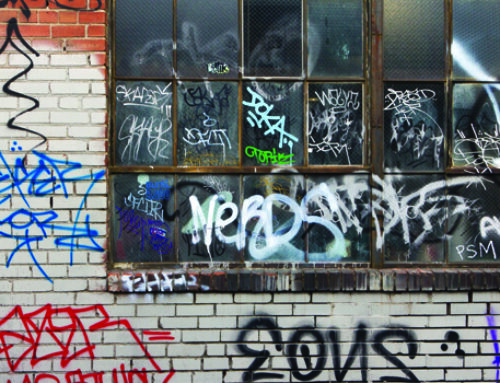Whether you are a board member or a resident, it is important to keep up with the legislative changes that may impact how your association can be governed. Several changes were made to the Texas Property Code in 2021 that impact what property use restrictions an association can adopt or enforce. To make these changes easier to navigate, we have complied a list, breaking down each new law that associations must follow.
Religious Displays (Texas Property Code Section 202.018)
Associations can no longer adopt or enforce restrictions that prohibit religious displays on an owner’s private property or dwelling, regardless of how many there are, how large they are, what they are made of, whether they alter the entry door or door frame, or where they are located.
However, associations can still prohibit religious displays that:
- Threaten public health or safety
- Are attached to traffic control devices, streetlamps, fire hydrants, or utility signs, poles, or fixtures
- Violate a law other than a law prohibiting the display of religious speech
- Are patently offensive to passersby for reasons other than religious content
- Are installed on HOA owned, HOA maintained, or commonly owned property
- Violate a building line, right-of-way, setback, or easement
Swimming Pool Enclosures (Texas Property Code Section 202.022)
HOAs can no longer prohibit property owners from installing pool enclosures that comply with state or local safety requirements.
According to the statute, a pool enclosure is a fence that:
- Surrounds a water feature
- Consists of transparent mesh or clear panels in metal frames
- Is no more than six feet high
- Is unclimbable
HOAs can still regulate the appearance of a pool enclosure. However, they are unable to prohibit a pool enclosure that is black and consists of transparent mesh or clear panels set in metal frames.
Safety and Security Measures (Texas Property Code Section 202.023)
HOAs cannot prevent owners from building or installing security measures on their property.
The statute doesn’t specifically define “security measures”, but it does list the following items:
- Security camera
- Motion detector
- Perimeter fence
HOAs can still regulate the type of fencing an owner can install on their property, though it is unclear whether an HOA can restrict fencing height or color. When in doubt, consult your association’s attorney. HOAs can also prohibit homeowners from installing security cameras outside of their own property.
Architectural Review Authority (Texas Property Code Section 209.00505)
This new law makes several changes for ACC committees. See below for all of the updates, which are now in effect:
- Board members, their spouses, and their household members cannot serve on the ACC.
- The ACC must send written notice of an improvement request denial.
- ACC hearings must be conducted by the board.
- The board may affirm, modify, or reverse the ACC’s decision.
- This new statute applies to associations with more than 40 lots and that are not in development.
209 Violation Hearings (Texas Property Code Section 209.007)
The board must now conduct all 209 hearings. The board will no longer be permitted to appoint a committee to conduct them.
The HOA must also provide the owner will an evidentiary packet containing all documents, photographs, and communications relating to the matter at least 10 days prior to the hearing.
Board Meeting Notice (Texas Property Code Section 209.0051(e))
Notice of a board meeting must be conspicuously posted in the community and emailed at least 144 hours before a regular board meeting.
If your association has a longer notice period listed in the governing documents, the association should still follow that longer notice period.
Open Meeting Requirements for Budget Approvals (Texas Property Code Section 209.0051(h))
Approval of any budget or budget amendment must be done at a properly noticed, open board meeting. This new law applies regardless of whether the association’s budget is increased.
Association Contracts (Texas Property Code Section 209.0052)
Associations must now follow a self-established bidding process for any service contract that exceeds $50,000. This does not apply to associations in the development period.
Online Subdivision Information Requirements (Texas Property Code Section 207.006)
Websites
Any association that has at least 60 lots or a management company must maintain a website and keep dedicatory instruments updated to the current version and available to the members on that website.
Recorded dedicatory instruments include:
- CC&Rs
- Bylaws
- Certificate of formation
- ACC guidelines
- Board-adopted rules, regulations, policies, and resolutions
Collections and Credit Reporting
HOAs must also provide written 209 notice to an owner by certified mail before reporting delinquency to a credit reporting service. Before an owner can be held liable for third-party collection fees, they must be provided with notice and 45 days to cure the violation.
Leases and Rental Agreements
HOAs can no longer demand a copy of a lease or rental agreement for a property owner’s tenant. HOAs can request contact information for residents and the start and end dates of their lease or rental agreement.
Justice Court Jurisdiction (Texas Property Code Section 209.017)
A property owner in a residential subdivision may sue an HOA in the Justice of the Peace Court for alleged violations of Chapter 209 of the Texas Property Code.
Now that you know all of the legislative changes that were made in 2021, you’ll want to make sure that all necessary changes are made to your association’s governing documents and rules and regulations. When making these updates, we suggest reaching out to both your management company and your association’s attorney to ensure that all changes are implemented correctly and across the board.







